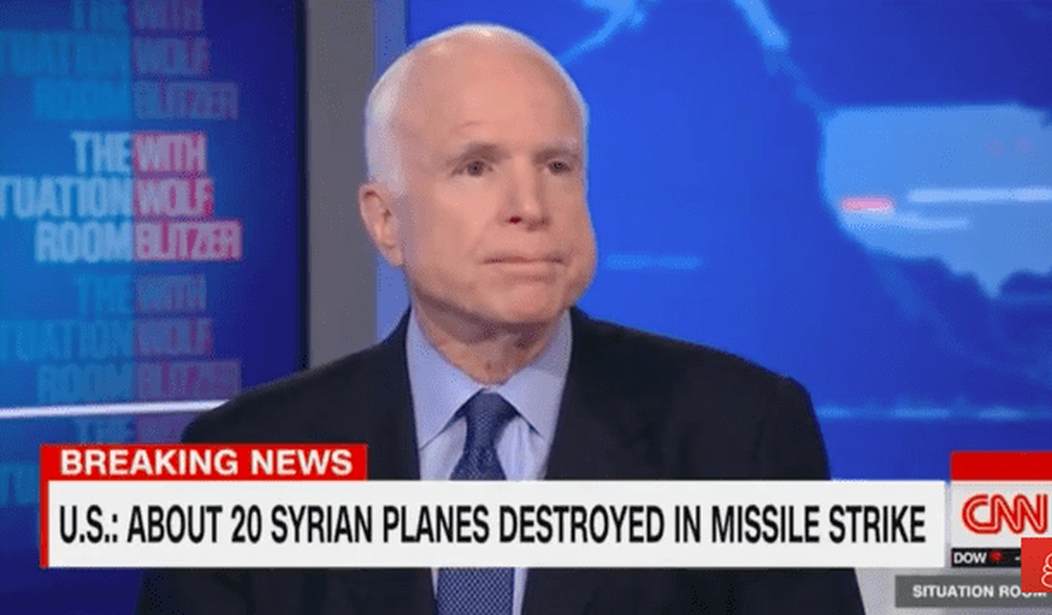WASHINGTON – Despite his administration’s tough rhetoric, President Trump understands that maintaining the Iran nuclear deal is in the United States’ best interest, Obama’s chief negotiator on the deal said Tuesday.
Wendy Sherman, who served as undersecretary of State for political affairs from 2011 to 2015, said that the nuclear deal allows the U.S. to use “all options” if Iran were to backpedal on the deal. Iran signed the Joint Comprehensive Plan of Action in 2015, agreeing to significantly curb operations at its nuclear facilities in return for the lifting of international oil and banking sanctions. The agreement involved the U.S., the UK, the EU, Russia, China and Germany.
Sherman, speaking at the Cato Institute a day before the Trump administration extended the waivers allowing sanctions relief under the nuclear deal, touted important safeguards included in the deal: intrusive monitoring, strict limitations on nuclear stockpiles and centrifuge production, and most importantly, according to Sherman, an extension on nuclear breakout time, or the amount of time it would take Iran to accumulate enough material for a nuclear weapon. The pact with Iran extended the breakout time to at least a year.
Trump has harshly criticized the Iran deal, suggesting that former Secretary of State John Kerry could have walked away from negotiations and gotten more concessions from Iran. The administration is currently reviewing the deal.
Sherman said that Obama negotiators understood that the deal would only survive the next administration if the president believed the deal to be in the country’s national security interest, and she argued that the deal’s safeguards ensure that it is.
“I think the Trump administration has come to understand that it is in our national security interest. I don’t think they love it, and they think they could have done better,” she said “(The safeguards mean) that all of our options, to reimpose sanctions or to take military action, remain in our hands, and we will have enough time to use any of those tools and more if we decide that they are trying to break out.”
Sherman was asked about Israeli Prime Minister Benjamin Netanyahu, who also had harsh words for the deal on a recent trip to Washington. Sherman said Israel was heavily involved in orchestrating the deal, calling Israel a “true partner” and the only “true democracy” in the Middle East. She also cited Israel’s technical nuclear expertise. Sherman said she has never questioned the prime minister’s right to oppose the deal, but her understanding is that Israel as a whole believes the deal has improved national security, for at least the next decade or so.
“I don’t think the prime minister has urged President Trump to rip up the deal, and I hope that, although I expect to hear a lot of tough rhetoric on this upcoming trip, we’ll see what actions follow,” she said.
Iran’s presidential election is Friday. President Hassan Rouhani is running for re-election against hardliner Ebrahim Raisi, who is seen as his biggest challenger. Both candidates want to see further lifting of non-nuclear sanctions.
Sherman said that in order to get those sanctions lifted, the next leader will need to change Iran’s reputation as “the world’s greatest state sponsor of terrorism.” She expressed skepticism that either candidate would be able to get Iran leadership on board with making such a significant change.
“They are doing terrible, nefarious, malicious things in the Middle East. They are not good actors in any way,” she said, citing threats to Israel through proxies Hezbollah and Hamas and human rights abuses against Iran’s own people.
Sherman was asked about CIA Director Mike Pompeo’s recent assessment that Iran has only expanded its bad behavior throughout the region since the deal was struck in 2015.
“There is no question, and we said this at the time, that Iran was going to continue its malicious activity in the region,” Sherman replied.
Sherman characterized ISIS as an outgrowth of the regime of Syrian President Bashar al-Assad, “who really broke his contract with his own people by using chemical weapons and barrel bombs and not figuring out to how to be inclusive in his government.”









Join the conversation as a VIP Member